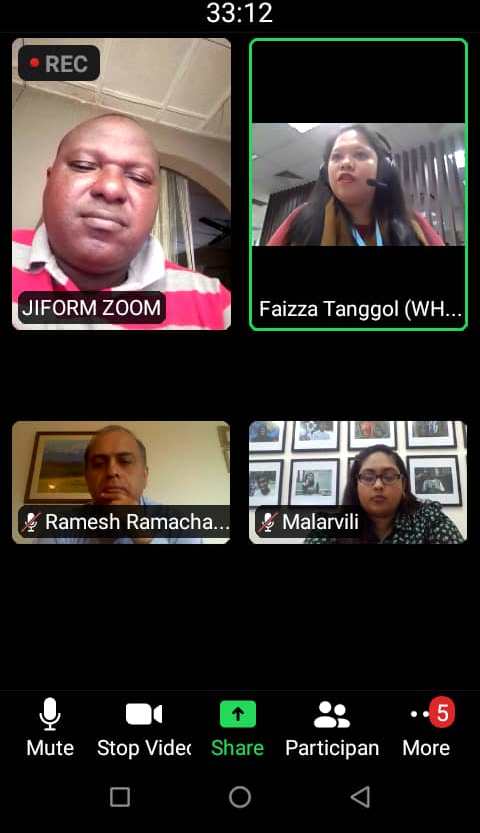By Ajibola Abayomi,
Lagos, Nigeria
The Asia-Pacific Institute for Broadcasting Development (AIBD) in collaboration with the International Organization for Migration (IOM) and World Health Organization (WHO) have taken the lead at the 2nd regional webinar to dispel disinformation about Migrants and Refugees.
The webinar is funded by the European Union Civil Protection and Humanitarian Aid (ECHO).
The organisations who were joint organizers of the made strong case for the need to protect the right of migrants amidst Covid-19 pandemic.
Many communities around the world have responded to COVID-19 with strong sense of cooperation and solidarity, some have, however, used it as a pretext to scapegoat migrants, refugees and the most vulnerable, blaming them for the spread of the virus.
There has seen an alarming increase in anti-migrant rhetoric, stigma, xenophobia, and discrimination against these vulnerable groups. Discriminatory attitudes and hate
crimes grounded in fear, compromise the rights of those targeted, affect the safety of all and undermine the complex recovery process.
According to the World Health Organization (WHO), stigma can drive people to hide their illness to avoid discrimination, preventing them from seeking immediate health care which is not only in their own best interests but also of the entire community as a whole.
In the longer term, stigmatization and discrimination can negatively impact the ability of refugees, migrants and vulnerable population to integrate into society.
This not only undermines their well being, but more broadly, that of receiving communities which benefit from their diverse contributions to social cohesion.
Hence, media practitioners whose ‘pen are mightier than the sword’ have important roles to play in shifting the negative perception towards these vulnerable groups based on realities on the ground.
During her welcoming remarks, AIBD Director, Ms Philomena Gnanapragasam said migrants and refugees are sensitive issues for any countries. Hence, it is the ultimate roles of the media practitioners to safeguard the well-being of this vulnerable groups through their fair and balanced reporting.
“Media practitioners should be mindful of negative expressions that can create or increase social stigma towards these vulnerable groups, and need to focus on inclusive language’, she pointed out.
“As we move towards building a sustainable, resilient recovery effort, there has never been a more urgent time to address these challenging issues. A collective, progressive and comprehensive answer to combating xenophobia can be put into action with the help of our participants,” said Kendra Rinas, Chief of Mission, IOM Malaysia.
Hosted virtually on 9th, 16th and 23rd March 2021 from Kuala Lumpur, Malaysia, local and international communication experts, media practitioners and representatives from Civil Society Organizations (CSOs) will share their experiences and expertise in migration reporting.
Among the speakers are Executive Director, Media Diversity Institute, London, Ms.Milica Pesic, Executive Director, North South Initiative, Malaysia, Mr. Adrian Pereira,
Senior Regional Media and Communications Officer, Spokesperson International Organization for Migration (IOM), Regional Office for Asia and the Pacific, Thailand, Mr Itayi Viriri.
The panel discussion will also include Ajibola Abayomi, the President of the Journalists International Forum For Migration (JIFORM) Headquartered in Lagos, Nigeria, Africa as well as speakers from Turkey and Bangkok Thailand to deliberate on Forging Forward: Solution Driven Media Reporting on Migration and Refugees.

Participants during the webnar

Propecia